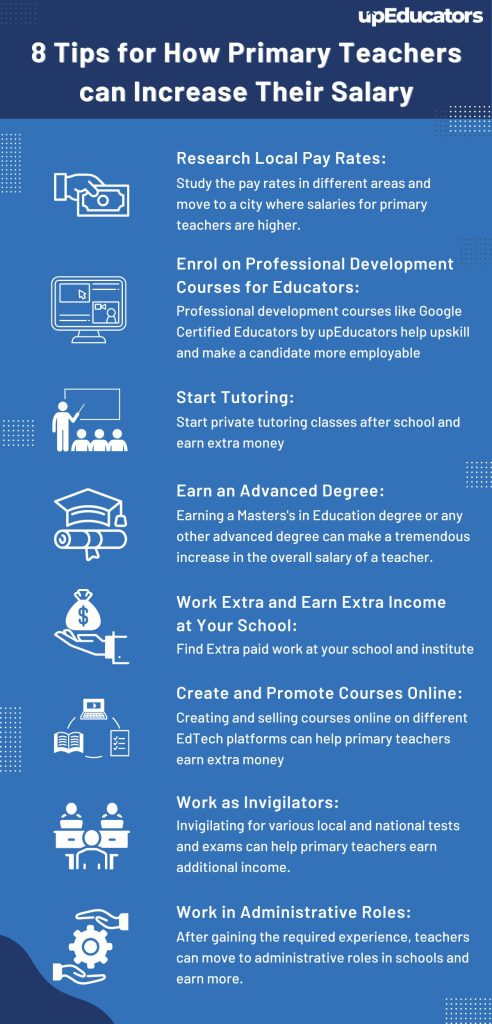
How to Become a Invigilator Course: Step-by-Step Guide
Are you looking for a unique and fulfilling role in the education sector? Becoming an invigilator could be the perfect fit for you.
This position not only lets you play a crucial role in maintaining the integrity of exams but also offers flexibility and a sense of accomplishment. But how do you start this rewarding journey? By taking an invigilator course. You’ll discover the essential steps and insights needed to become a certified invigilator.
Whether you’re seeking to enhance your career or simply love the idea of contributing to educational excellence, keep reading to find out how this course can open new doors for you.

Role Of An Invigilator
The role of an invigilator is vital in the examination process. Invigilators ensure exams run smoothly, fairly, and securely. They maintain order and uphold integrity during tests.
Invigilators create a calm environment for students. This encourages focus and concentration. Their presence helps deter cheating or unethical behavior. They are the eyes and ears of the examination room.
Understanding The Examination Environment
Invigilators are familiar with the exam layout and rules. They ensure all students are seated correctly. They also verify the necessary materials are in place. This preparation helps avoid confusion during the exam.
Ensuring Compliance With Exam Protocols
Exam protocols must be followed strictly. Invigilators communicate important rules to students. They remind students of time limits and prohibited items. This ensures everyone follows the same guidelines.
Monitoring During The Exam
During the exam, invigilators watch over the students. They move around the room to deter misconduct. They also assist with any issues, like technical problems or student queries. This vigilance supports a fair testing environment.
Handling Emergencies And Unexpected Situations
Emergencies can occur during exams. Invigilators must act quickly and calmly. They manage situations like illness or fire alarms. Their role involves ensuring safety and minimizing disruptions.
Post-examination Duties
After exams, invigilators collect and secure test papers. They ensure all materials are accounted for. They also report any incidents or irregularities. This final step completes their role in maintaining exam integrity.
Skills Required
Aspiring invigilators should possess strong attention to detail and effective communication skills. Organizational abilities are essential for maintaining exam integrity. Familiarity with exam protocols ensures smooth operation during assessments.
Becoming an invigilator is a rewarding role that requires a specific set of skills. Whether you’re supervising exams at a school or a professional certification center, having the right skills ensures the process runs smoothly. Let’s explore the essential skills needed to excel as an invigilator.
Attention To Detail
Attention to detail is critical when invigilating exams. You need to ensure all exam materials are correct and distributed properly. A slight mistake could lead to confusion or even invalid results. Imagine a student writes answers on the wrong sheet because of a mix-up. This could affect their entire grade. Double-checking each detail, no matter how small, helps maintain the integrity of the exam process.
Communication Skills
Clear communication is essential for invigilators. You must convey instructions effectively to a diverse group of students. Miscommunication can lead to misunderstandings and unnecessary stress. Think about a time when you received unclear instructions. How did it make you feel? As an invigilator, your words should guide students calmly and confidently, ensuring everyone understands what’s expected.
Time Management
Effective time management keeps exams on schedule. You need to allocate time for distributing materials, explaining rules, and monitoring the exam. A well-managed timeline ensures a stress-free environment for everyone. Consider the chaos of an exam running over time. It disrupts not only the current session but potentially the entire day’s schedule. By managing time wisely, you help maintain order and fairness throughout the exam process. By honing these skills, you can become a highly effective invigilator. Which skill do you think you’ll need to work on the most?
Educational Qualifications
Becoming an invigilator can be a rewarding career path, especially if you have a keen eye for detail and a passion for maintaining fair examination standards. However, before you step into the exam room with a clipboard and a calm demeanor, understanding the educational qualifications required is crucial. This section will guide you through the essential qualifications, starting with the basics and then exploring additional certifications that can enhance your profile.
High School Diploma
A high school diploma is typically the minimum educational requirement for becoming an invigilator. It demonstrates that you possess foundational skills in literacy and numeracy, which are necessary for managing examination processes. If you have completed high school, you’re on the right path.
Think about your high school experience. Did it teach you discipline and attention to detail? These skills are vital for invigilators. Having a diploma shows that you can follow rules and instructions, a core part of invigilating.
Do you recall the stress of exams during high school? As an invigilator, you’ll be the calming presence for students facing similar pressure. Your diploma not only opens doors to this role but also equips you to empathize with the examinees.
Further Certifications
While a high school diploma is essential, obtaining further certifications can significantly boost your chances of securing an invigilator position. Consider certifications in educational administration or exam management. They add credibility to your application and show your commitment to the role.
Do you enjoy learning new skills? Certifications can enhance your knowledge about examination protocols. They might cover areas like handling exam materials securely or understanding digital examination platforms.
Imagine being an invigilator who is well-versed in the latest exam technologies. Additional certifications can set you apart, making you a preferred candidate for institutions that value tech-savvy invigilators. Are you ready to take your qualifications to the next level?
Training Programs
Training programs are essential for anyone aspiring to become an invigilator. They provide the necessary skills and knowledge to excel in this role. These programs help build confidence and competence. Whether you prefer learning online or in-person, there are several options available.
Online Courses
Online courses offer flexibility and convenience. You can learn from home at your own pace. Many platforms provide comprehensive invigilator training. Videos and interactive modules make learning engaging. Quizzes and assignments test your knowledge. Online support ensures you get help when needed.
In-person Workshops
In-person workshops provide hands-on experience. They are held by experienced trainers. These sessions allow direct interaction with peers. You can ask questions and get immediate feedback. Practical exercises enhance your understanding. Networking opportunities are a bonus. Participants often leave with valuable insights.
Application Process
The application process for becoming an invigilator involves several important steps. It’s crucial to approach each step with care and attention. This ensures your application stands out and increases your chances of success. Start with thorough research, move on to preparing your resume, and finally submit your applications.
Research Institutions
Begin by researching institutions offering invigilator courses. Look for universities, colleges, and training centers. Check their websites for course details and application requirements. Make a list of the places that fit your needs.
Prepare Your Resume
Craft a resume that highlights your skills and experience. Focus on details relevant to invigilator roles. Include any past experience in education or supervision. Make sure your resume is clear, concise, and free of errors.
Submit Applications
Submit your application to the institutions on your list. Follow their specific guidelines and attach your resume. Ensure all information is accurate and complete. Keep track of application deadlines and follow up if necessary.

Interview Preparation
Preparing for the ‘How to Become an Invigilator’ course interview demands clear understanding of role responsibilities. Highlight your ability to ensure fair examination conditions and manage student interactions effectively. Practice answering common interview questions confidently to showcase your readiness for this position.
Preparing for an interview to become an invigilator can be a daunting task, but with the right approach, you can walk in with confidence. It’s not just about knowing your resume inside out; it’s also about understanding what the interviewers are looking for in a candidate. You need to present yourself as a responsible and detail-oriented individual. Let’s dive into how you can ace this interview with some practical tips.
Common Interview Questions
Expect questions that assess your ability to maintain order and handle unexpected situations. They might ask, “How would you manage a disruptive student during an exam?” Here, emphasize your calm demeanor and problem-solving skills. You could also be questioned on your understanding of exam protocols. Prepare to explain the steps you’d take to ensure exams are conducted fairly and securely. Think about any past experiences where you’ve demonstrated vigilance and reliability. Reflect on questions about teamwork. For instance, “Can you describe a time when you worked with others to achieve a common goal?” Share a relevant story that highlights your ability to collaborate effectively.
Dress Code Tips
Dressing appropriately for the interview can set the right tone. Aim for a professional and tidy appearance. This shows respect for the role and the institution you’re applying to. Consider wearing neutral colors like navy, gray, or black. These colors are not only professional but also less distracting. Ensure your outfit is clean and pressed. Accessories should be minimal. Avoid anything that might take attention away from your skills and qualifications. Remember, your aim is to make a lasting impression with your professionalism, not your fashion choices. By preparing for these aspects of your interview, you position yourself as a strong candidate. Would you hire someone who pays attention to these details? If yes, then you’re on the right track.
On-the-job Training
On-the-job training is crucial for aspiring invigilators. It provides real-world experience and practical skills. This training helps new invigilators understand their role better. They learn through direct observation and hands-on practice. This immersive approach builds confidence and competence.
Shadowing Experienced Invigilators
Shadowing experienced invigilators is a key part of training. New trainees watch and learn from seasoned professionals. This method offers insights into effective invigilation techniques. Trainees observe how experts handle unexpected situations. They learn how to maintain a calm exam environment. Shadowing helps new invigilators gain valuable knowledge quickly.
Understanding Exam Protocols
Understanding exam protocols is essential for every invigilator. Protocols ensure fairness and consistency during exams. Trainees learn the rules and guidelines thoroughly. They practice implementing these protocols in different scenarios. This training ensures exams run smoothly and without disruptions. Understanding protocols also helps invigilators handle issues confidently.
Career Advancement
Career advancement is a crucial consideration for anyone looking to pursue the Invigilator Course. As you step into this role, you open doors to a dynamic field where growth is not just possible but highly encouraged. Whether you are seeking to expand your network or specialize in unique roles, becoming an invigilator offers ample opportunities to elevate your career.
Networking Opportunities
Becoming an invigilator introduces you to a wide array of professionals in the education sector. You will work alongside educators, administrators, and fellow invigilators, each bringing unique perspectives and experiences.
These connections can be invaluable. They might lead to collaboration on projects or even open up new job opportunities. Remember, your next career move could be a conversation away.
Consider attending workshops and seminars related to invigilation. These events are great places to meet people who share your interests and career goals. They can also provide insights into industry trends and best practices.
Specialized Roles
As an invigilator, you have the chance to explore specialized roles within the field. Some institutions offer positions that focus on specific examinations or cater to particular student needs.
For instance, you might become a lead invigilator, overseeing entire examination processes and managing teams. Such roles not only increase your responsibilities but also your professional visibility.
Think about what unique skills or passions you bring to the table. Could you be the go-to expert for digital exams or specialize in accommodating students with disabilities? Identifying a niche can significantly boost your career trajectory.
What role do you envision for yourself in the invigilation field? The path is wide open, waiting for you to make your mark.
Frequently Asked Questions
What Is An Invigilator Course?
An invigilator course trains individuals to supervise exams effectively. It covers exam regulations, student management, and ensuring fairness. Courses typically offer practical guidance on maintaining discipline and handling irregularities. Completing the course enhances your ability to manage testing environments and ensures smooth examination processes.
How To Enroll In Invigilator Training?
To enroll, search for accredited institutions offering invigilator courses online. Review their course details and requirements. Register by filling out an application form and paying the necessary fees. Ensure you meet any prerequisites before applying to streamline your enrollment process.
What Skills Are Needed For Invigilators?
Invigilators need strong organizational skills, attention to detail, and effective communication abilities. They must remain calm under pressure and handle unexpected situations confidently. Being familiar with examination procedures and maintaining fairness are crucial for ensuring a smooth testing environment.
How Long Does Invigilator Training Take?
Invigilator training duration varies by institution. Typically, courses last from a few days to several weeks. They include theoretical and practical components. Completing assignments and assessments may extend the time. Check the course details to understand the exact timeframe involved.
Conclusion
Becoming an invigilator opens many opportunities in the education field. The course equips you with essential skills and knowledge. You’ll learn to manage exams and assist students effectively. This role is crucial for maintaining integrity in assessments. It also builds experience for future educational roles.
Completing this course can be a rewarding step in your career. So, consider joining the program today. Enhance your skills and contribute to the academic community. Embark on this journey with confidence and dedication. The path is clear, and the rewards are fulfilling.




